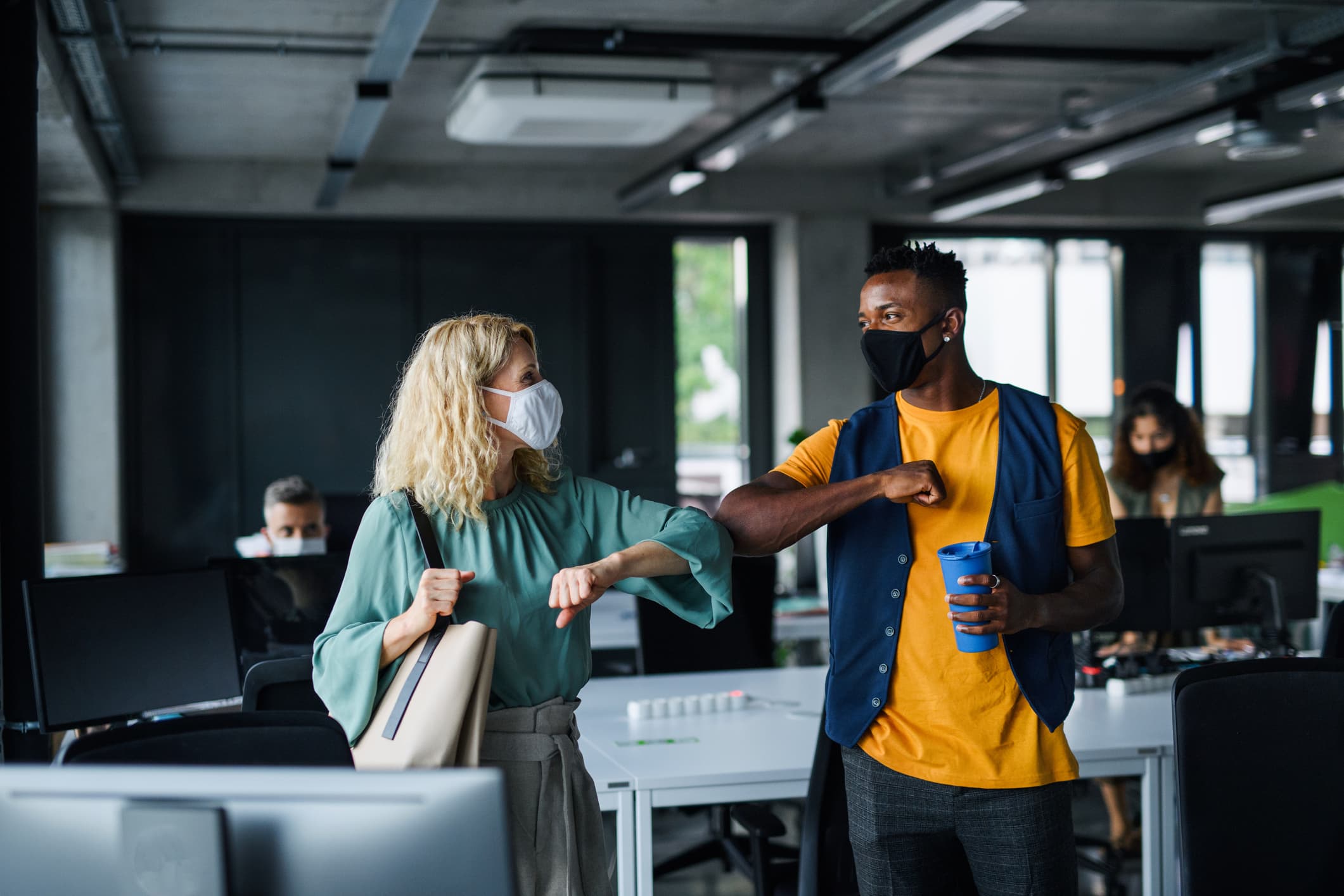
New York City will now require employees at private companies to get vaccinated against the coronavirus, Mayor Bill de Blasio announced in an interview with MSNBC early Monday.
The new mandate comes after New York identified eight cases of the omicron variant and the United States once again averages 100,000 new, reported cases of the virus every day. It will cover about 184,000 businesses and applies to all in-person employees who work in an office with others.
By Dec. 27, unvaccinated employees must have received at least one dose of the coronavirus vaccine, de Blasio said. Under the new mandate, unvaccinated employees won’t have the option to get tested instead, but the city plans to offer religious and medical exemptions.
“We’ve got omicron as a new factor, we’ve got the colder weather, which is really going to create additional challenges with the delta variant, we’ve got holiday gatherings,” de Blasio said during his appearance on MSNBC’s “Morning Joe.” “We in New York City have decided to use a preemptive strike to really do something bold to stop the further growth of Covid and the dangers it’s causing to all of us.”
Nearly 78% of New York City residents have received at least one dose of the coronavirus vaccine as of Dec. 6.
Below, two public health experts and an employment lawyer explain how the new vaccine mandate could help curb the spread of the virus and what challenges the new rules could bring.
Other cities could unveil their own vaccine mandates in the coming months
Dr. Robyn Gershon, a clinical professor of epidemiology at the NYU School of Global Public Health, tells CNBC Make It that she wouldn’t be surprised to see other cities announce similar vaccine mandates, calling it “an essential move” for the United States to reduce the threat of the virus.
Other large, densely populated cities would especially benefit from a vaccine mandate for private companies, she adds, because it’s easier for the virus to spread in such environments. “They’d be crazy not to mandate vaccines, because it’s in their best interest,” Gershon says. “People have a pent-up desire to dine out, go to restaurants and ‘return to normal,’ but we need to be safe … the best way to do that is to get vaccinated.”
Other cities with large business communities like Boston or Los Angeles could emulate the mandate, says Dr. Gigi Gronvall, a senior scholar at the Johns Hopkins Center for Health Security at the Bloomberg School of Public Health. But they might be less effective implementing such rules.
“New York City holds more business and political cards than most cities,” Gronvall notes. “For example: people who work in New York City, but don’t live there, still have to pay New York taxes — a lot of cities wouldn’t get away with that.”
Another factor that will determine when and how other cities will follow suit is how prepared cities are to implement such a mandate. That includes having sufficient vaccine supplies, available appointments at pharmacies, a system to track vaccinations and enough health-care professionals to administer the shots.
Remote employees will be exempt for now
The new mandate only applies to in-person employees who are in an office with others — but if cases continue to rise, we could see mandates expand to include all employees, even those working in a remote or hybrid environment.
“There will always be people who are going to be exempt to the rule, whether it be for medical, religious or other reasons, but for the rest of us, getting as many people vaccinated as we can will make life so much easier,” Gershon says. “It’s a nightmare for companies, especially smaller employers, to keep track of who a Covid-positive employee was in contact with, especially if they have any in-person meetings or job responsibilities off-site.”
The future of vaccine mandates — and who the rules cover — will also depend on people’s stance on vaccines in different cities, Gronvall adds. “We’ve seen several states have issues enacting public health measures during the pandemic because people are protesting them,” she says. “For vaccine mandates to be successful, we also have to fight vaccine mistrust.”
Legal challenges could muddy the waters
Although the Biden administration’s national vaccine mandate for private businesses has been put on hold as a federal appeals court reviews the rules, New York City’s vaccine mandate should be met with far fewer legal challenges, Walter Foster, an employment lawyer with Eckert Seamans Cherin & Mellott, notes.
“OSHA [The U.S. Department of Labor’s Occupational Safety and Health Administration] has a higher threshold to surmount in order to prove that it has the power to enact such a sweeping mandate, vs. a city or state government,” he explains. “So the courts are erring on the side of caution.”
States and cities, however, have the constitutional power to protect their citizens’ health and welfare, whether it be through vaccine mandates or other means.
De Blasio said he’s confident the new mandate would be upheld in court as similar policies have been approved. “They have won in court — state court, federal court — every single time,” he told MSNBC. “And it’s because they’re universal and consistent.”
Check out:
Sign up now: Get smarter about your money and career with our weekly newsletter




